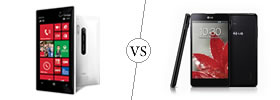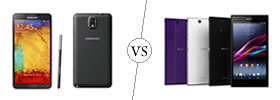Difference between Zigbee and Bluetooth
Key Difference: Zigbee is a specification for a set of wireless protocols that have been designed for data transfer by low power devices. It is based on an IEEE 802.15 standard. Zigbee has been developed by the Zigbee alliance. Bluetooth is a wireless technology through which electronic devices communicate with each other. It is used for the creation of personal networks that operate in the 2.4 GHz unlicensed band and with a range of 10 meters. Both differ in many aspects like bandwidth of channel, data rate, etc.
 Zigbee is a specification for a set of wireless protocols that have been designed for data transfer by low power devices. These high level communication protocols are used for producing personal area networks using small and low power digital radios. Zigbee is based on an IEEE 802.15 standard. It has been developed by the Zigbee alliance. It aims to provide effective and quick responses. Zigbee is standardized at two different levels –
Zigbee is a specification for a set of wireless protocols that have been designed for data transfer by low power devices. These high level communication protocols are used for producing personal area networks using small and low power digital radios. Zigbee is based on an IEEE 802.15 standard. It has been developed by the Zigbee alliance. It aims to provide effective and quick responses. Zigbee is standardized at two different levels –
- The radio chips that are being used follow specified design rules.
- The protocol layers that are responsible for the functioning of the network are controlled by the Zigbee
Alliance.
ZigBee has a defined rate of 250 kbit/s. It is slower than Bluetooth and Wi-Fi, with which it is often compared. An important feature of the ZigBee protocol is its capability to provide support to the mesh network. It is important to mention that each ZigBee network contains a network coordinator.
.jpg) Bluetooth is a wireless technology through which electronic devices communicate with each other. It has features like low cost, short range and less power consumption. It is used for the creation of personal networks that operate in the 2.4 GHz unlicensed band and with a range of 10 meters.
Bluetooth is a wireless technology through which electronic devices communicate with each other. It has features like low cost, short range and less power consumption. It is used for the creation of personal networks that operate in the 2.4 GHz unlicensed band and with a range of 10 meters.
The name has been coined after a Danish king- Harald Blatand, whose name loosely translates into “Bluetooth”. In 1998, Intel, Ericsson, Nokia, IBM and Toshiba formed a Special Interest Group named SIG. The aim of this group was to establish a short range radio frequency wireless technology. Later, more members were added to the group and everyone agreed with the concept of a royalty free standard. Bluetooth technology enables the wireless connection between laptops, desktops, personal digital assistants, etc. It focuses on the short range connections.
Comparison between Zigbee and Bluetooth:
|
|
Zigbee |
Bluetooth |
|
Definition |
Zigbee is a specification for a set of wireless protocols that have been designed for data transfer by low power devices. It is based on an IEEE 802.15 standard. Zigbee has been developed by the Zigbee Alliance. |
Bluetooth is a wireless technology through which electronic devices communicate with each other. It is used for the creation of personal networks that operate in the 2.4 GHz unlicensed band and with a range of 10 meters. |
|
Origin |
Devised in the year 1998. Named after the movements of honeybee. |
Launched in the year 1994 by Swedish telecom giant Ericsson. Named after a famous European unification king, Harald Blatand. |
|
Management |
Managed by Zigbee Alliance |
Bluetooth SIG (Special Interest Group) |
|
Bandwidth of the channel |
Bandwidths upto 1 MHz |
According to the frequency of the network it can be of 0.3MHz, 0.6 MHz and 2 MHz |
|
Application area |
Focus on control and automation |
Focus on connectivity between laptops, PDA's, etc. |
|
Data rate |
Low |
High |
|
Power consumption |
Low |
High |
|
Devices |
Small packet devices |
Large packet devices |
|
Support to devices |
Capable of supporting a large number of devices |
Capable of supporting a number of devices |
|
Response time |
Less |
More |
|
Range |
10-100 meters |
10 meters |
|
Networking topology |
Ad-hoc, peer to peer, star or mesh |
Ad-hock, very small network |
|
Complexity (Device and application impact) |
Low |
High |
|
Security |
128 AES plus application layer security |
64 and 128 bit encryption. |
|
Typical network join time |
30 milliseconds |
3 seconds |
|
Battery |
Not rechargeable |
Intended for frequent recharging |
Image Courtesy: spectrose.com, flicksoftware.com









Comments
Peptya
Mon, 10/09/2017 - 17:38
Hi, yes you are correct. Thank you for pointing that error out, we have fixed it.
dbadmin
Wed, 10/11/2017 - 09:36
Add new comment